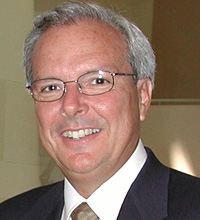Governance as Evolution: The consequences of mega trends on family business governance
Governance is a perennial topic in the field of family enterprise. For new paradigms and insights read “Governance as Evolution: The consequence of mega trends on family business governance” here by guest bloggers Alexander Koeberle-Schmid, Denise Kenyon-Rouvinez and Ernesto J. Poza.
Governance in a family enterprise is evolution, not prescription – it is always a work in progress, never a completed project. It requires consistent discipline, and strategies and structures have to be adapted not only as the business and the family change and grow, but also as the world changes economically, commercially, and demographically.
Family enterprises should always know which challenges they face. Cultural and demographic changes as well as communication are mega trends that affect family businesses and their families, too.
Cultural change
A cultural trend is that the generation that is starting to inherit now is less naturally obedient. The younger generation appears to be more individualistic, with respect to the clan, but also highly collaborative and internationally oriented, through Facebook, Twitter, and so on. Society and corporate culture have become less patriarchal, and families will eventually also have to evolve towards that new paradigm.
There is an obvious challenge for family enterprises here. What will they need to do to attract their talented next-generation members, keep them motivated, and retain them?
Demographic change
Across many parts of the world, human population and lifespan are rising markedly. For all businesses and governments, this creates immense opportunities and challenges, but there are naturally unique aspects for the family enterprise. How will it affect the concept of succession, if there are three or four generations of working age, many of whom wish to work in the business? Can family enterprises retain their talented and ambitious 30-somethings and 40-somethings, who have begun to acquire considerable executive experience, if the 75-year-old tennis-playing, highly active founder/CEO is still working and is showing no desire to make way for them?
Communication
The modern business is more akin to a complex international network of teams than the monolithic structure of the twentieth century. Virtual, international teams and greater use of informal communication, in addition to formal face-to-face meetings, are natural consequences of globalization and internet-based technology. These challenges call for a very different approach to communication. Engaging people – all stakeholders – remains of paramount importance, but can be a greater challenge for two reasons: people tend to be more geographically dispersed and they may be more mobile and ambitious. How can the younger generation be involved and cohesion be encouraged?
To find more ideas on solutions to the challenges of governance in family enterprises, you can read: Governance in Family Enterprises – Maximizing Economic and Emotional Success (Palgrave Macmillan, ISBN 978-1-137-29389-3) by the authors.
About the contributors:


 Alexander Koeberle-Schmid is a family business advisor with KPMG AG Wirtschaftsprüfungsgesellschaft. Denise Kenyon-Rouvinez is Wild Group Professor of Family Business and co-director of the Global Family Business Center at IMD. Ernesto J. Poza is clinical professor of Global Entrepreneurship and Family Enterprise at the Thunderbird School of Global Management. They can be reached at a.koeberle-schmid@intes-beratung.de, denise.kenyon-rouvinez@imd.org, ernesto.poza@thunderbird.edu.
Alexander Koeberle-Schmid is a family business advisor with KPMG AG Wirtschaftsprüfungsgesellschaft. Denise Kenyon-Rouvinez is Wild Group Professor of Family Business and co-director of the Global Family Business Center at IMD. Ernesto J. Poza is clinical professor of Global Entrepreneurship and Family Enterprise at the Thunderbird School of Global Management. They can be reached at a.koeberle-schmid@intes-beratung.de, denise.kenyon-rouvinez@imd.org, ernesto.poza@thunderbird.edu.
Stay tuned next week for another issue of The Practitioner.
Yours in Practice,
The Practitioner




